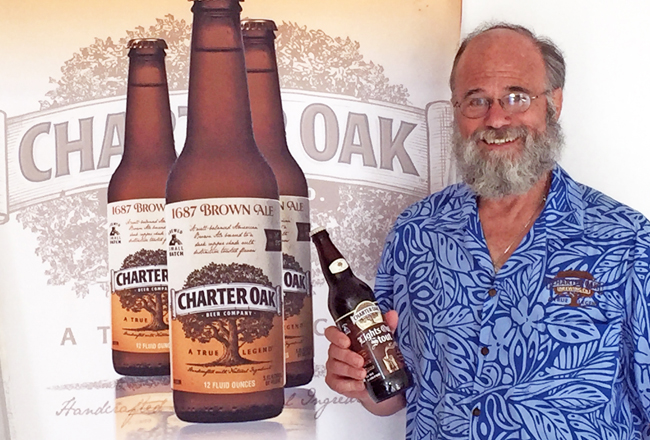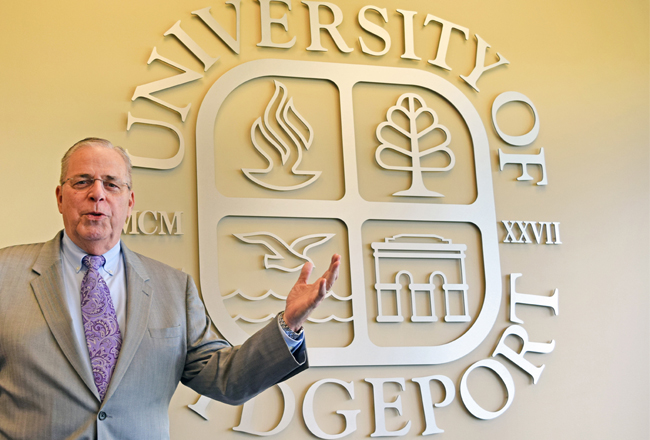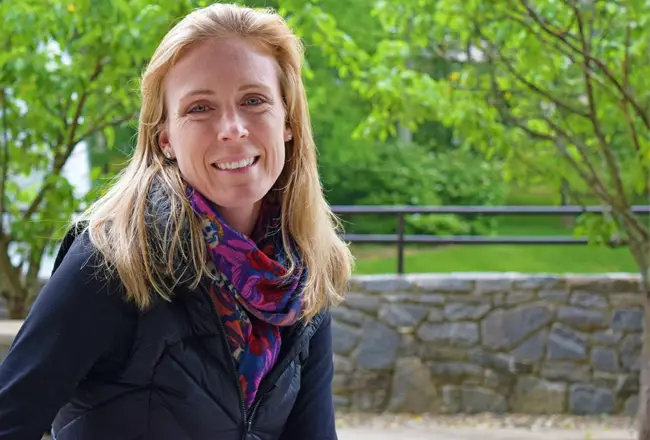Entrepreneurial education is usually associated with business schools, but Iona College is aiming at a broader audience with the hiring of Christoph Winkler to head the Hynes Institute for Entrepreneurship and Innovation.
Winkler wants to train all students to become problem solvers and innovators.
“I want them to discover their entrepreneurial itch,” he said, “and help them scratch it.”
The institute was endowed with a $15 million gift from James and Anne Marie Hynes of Greenwich. Its mandate is to create a transformational, cross-disciplinary experience for students, faculty, alumni and surrounding communities.
Winkler is an educational psychologist by training. He comes to Iona from Long Island University, where he was an associate professor of entrepreneurship and academic director of an enterprise and innovation center.
He has held similar positions with Baruch College and City University of New York, where he received master”™s and doctorate degrees in educational psychology. He studied at Johannes Kepler University in Linz, Austria.
The Iona institute will be unique, he said, because it will cut across all disciplines and embrace all students at the Catholic college in New Rochelle.
His appointment is to both the School of Business and the School of Arts and Science.
The institute will start up this fall with a course of studies in entrepreneurship, according to an Iona news release. Eventually, it might confer undergraduate and master”™s degrees and employ an entrepreneurship club, pitch competitions, mentoring and a community incubator.
Hynes Institute will have to practice what it preaches: explore and test ideas, collaborate with faculty in disparate disciplines, solve problems, translate interests into action and make an impact.
Winkler said the focus first of all must be on the students, starting with exposing them to the potentials of entrepreneurship.
“It”™s really an introduction to a methodology, identifying opportunities and approaching them in a way to bring about change.”
Students will be expected to make choices. What interests them the most? What problems do they want to solve? The institute will help them develop the skills they need to achieve their goals.
The entrepreneurial label is traditionally attached to people who start companies or create products. Winkler defines success more broadly.
He does not expect every student to launch a business. Some will want to work in large corporations where they can advance a mission. Some will never be risk-takers, but can become comfortable with problem solving.
An English major might apply a passion for literature to starting a school in Africa.
The methodology embeds the seed of lifelong learning.
“By definition, you become a learner because you are curious about something,” Winkler said.
Success begets success. As you solve problems, you learn fundamental techniques that enable you to set higher goals, solve bigger problems and achieve greater successes.
The institute derives at least some of its DNA from its funders.
James Hynes, a 1969 Iona graduate and chairman of the board of trustees, was a managing director of Fidelity Capital.
He was a co-founder and the first CEO of COLT Telecom Group, one of the largest telecommunications businesses in the United Kingdom. He co-founded and ran Neutral Tandem Inc., an innovator of voice technology that eventually become Inteliquent Inc.
Anne Marie Hynes studied math as an undergraduate at Pace University, where she also got a master”™s in management science and a law degree. She has focused on community services, such as working with Pace Women”™s Justice Center in White Plains. She is president of the Hynes Foundation.
Winkler thinks Iona”™s entrepreneurial program could be transformational.
“It”™s not really about the degree,” he said. “It”™s the experiences that come with it, the ability to continue learning and to engage your environment.”
“These are the skills that serve as a catalyst to lifelong learning.”




















